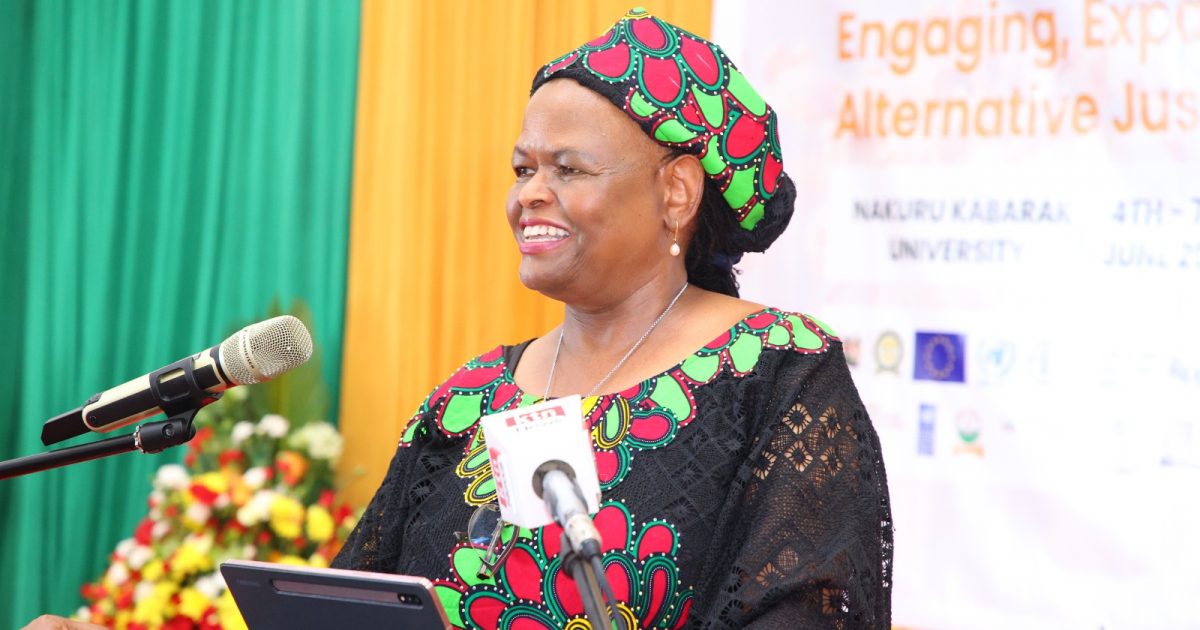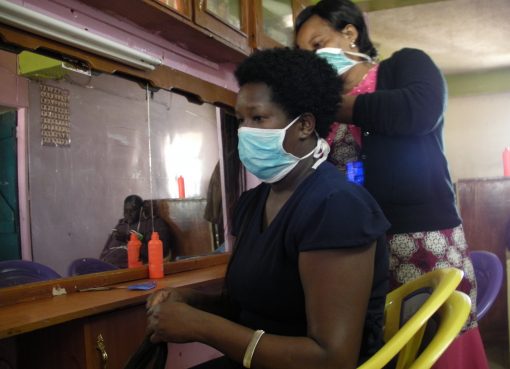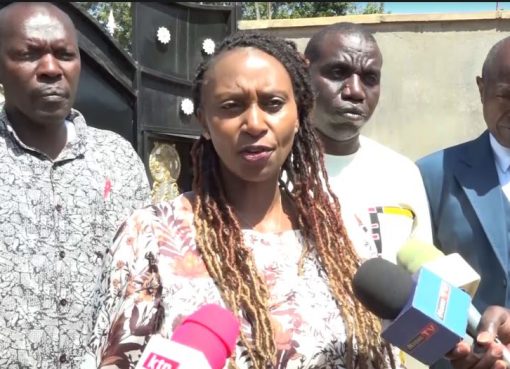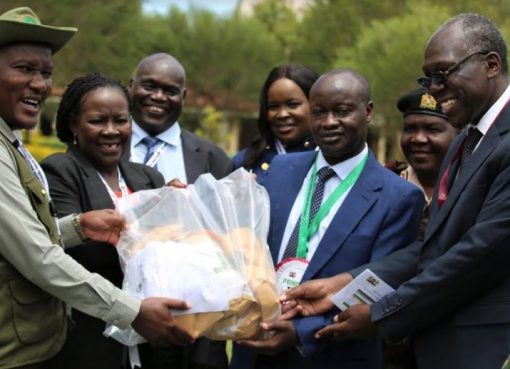Chief Justice Martha Koome has stated that the Judiciary is working on strategies designed to make Kenyans agents of their own justice.
CJ Koome indicated that among the approaches to promote a people-centered justice system includes expanding routes of justice outside the limits of courtrooms through Alternative Justice Systems (AJS), and enhancing collaboration to close the justice gap.
Making her presentation during the third Annual Alternative Justice Systems (AJS) Conference at Kabarak University Justice Koome pledged that the Judiciary will continue to innovate approaches that enhance access to justice by expanding and re-tooling alternative justice systems.
“These novel methods must ensure that the justice seeker remains at the centre of reform efforts. This means that we re-commit to persistently focus on people’s justice needs and the outcomes they need,” CJ Koome told participants.
She noted that the Justice Needs and Satisfaction Survey of 2017 established that only 10 percent of Kenyans approach the courts to settle their disputes. It was reported in the survey that 71 percent of persons with justice needs went to various alternative avenues of disputes resolution.
“It was further established that 19 percent of Kenyans with legal problems did not take any form of action to resolve the problem or seek a remedy,” the CJ added.
Justice Koome stated that the burden of injustice falls too heavily on women, children and other vulnerable groups she regretted face the hardest struggle to access the justice system and exercise their rights.
“The justice gap is both a reflection of structural inequalities and disparities in power, and a contributor to these inequalities. Within this context. Our Constitution aspires to fulfil the determination of Kenyans to combat exclusion and inequality, protect the vulnerable in society and enhance access to justice. In so doing, it aims to transform the society,” she pointed.
The Chief Justice indicated that AJS is important in closing the justice gap in accordance with Article 159(2) (c) of the Constitution which calls upon the Judiciary to promote alternative forms of dispute resolution, including reconciliation, mediation, arbitration and traditional dispute resolution mechanisms.
She indicated that this entails the mechanisms that are deeply ingrained in cultural fabric among communities across Kenya, utilised to resolve conflicts since time immemorial.
These mechanisms range from the council of elders in many ethnic groups to negotiated settlements among aggrieved parties to reconciliation agreements, including organic restorative justice within and by communities,” the CJ stated noting when these mechanisms are aligned with the Bill of Rights, they can be fully utilised to reduce the justice gap.
Justice Koome said that already, the Judiciary has rolled out AJS centres in seven Counties and plans were underway for the rollout of AJS across the country.
She stated that there were AJS County Action Plans in Kajiado, Nakuru, Mandera, Turkana, Narok and Uasin Gishu Counties.
This is in addition to the launch of AJS Ukumbi (Suites) in Kajiado, Nakuru, Mandera, Samburu, Turkana, Lamu and Uasin Gishu in Moiben, Turbo, Kesses, Ainabkoi, Kapsaret and Soi.
The event which ends on Friday is being co-hosted by the County Government of Nakuru, Nakuru High Court, and Egerton and Kabarak Universities.
CJ Koome pledged that the Judiciary, under its vision of ‘Social Transformation through Access to Justice’ (STAJ), seeks to position itself to contribute towards the realization of the social justice aspiration of the Constitution through adjudication of disputes, facilitation of justice dialogues, connection of justice champions and promotion of social harmony.
She called on Kenyans to continue to innovate approaches that enhance access to justice by expanding and re-tooling alternative justice systems.
Court of Appeal Judge who chairs the Judiciary’s National Steering Committee on Implementation of Alternative Justice Systems Policy (NaSCI-AJS) Professor Justice Joel Ngugi said the conference was fulfilling one of the major objectives of the committee to rally all sectors of Kenyan social, religious, judiciary, and cultural life to continuously and emphatically support the AJS mechanism and expand the pool of individuals and groups accessing justice in Kenya.
The AJS module, he pointed out has a panel of at least three arbitrators who sit with opposing parties. “The panelists include elders, prisons in charge, lawyers, religious leaders, and court officials among others. As of now, the panelists sit in the court’s jurisdiction,” noted Justice Ngugi.
Those in the panel get the root cause of disputes by hearing opposing parties vent, disagree, and offer solutions themselves. The panel gives advice and recommendations only.
Unlike the court procedure that is strict, technical, complicated and rigid, Justice Ngugi said AJS has a vast way of resolving disputes.
The AJS, he noted, ensures all parties win and reconcile after resolving disputes. The process is usually supposed to take six months.
Justice Ngugi noted that this year’s conference is the largest with 600 delegates drawn from all 47 counties and it is clear AJS has become a Social Justice Movement.
Nakuru Governor Susan Kihika in a speech read on her behalf by the Deputy Governor David Kones, said the AJS centers’ role in promoting a just social order, emphasising reconciliation, and fostering peaceful co-existence is crucial in empowering individuals to reach their full potential.
“The efforts to strengthen the Alternative Justice System in Nakuru are encouraging, especially in addressing the lengthy resolution processes for land and family disputes. It’s crucial to enhance these systems to provide effective and efficient dispute-resolution mechanisms for our community. AJS is cost-effective and efficient in resolving disputes,” Governor Kihika said.
In his remarks the Deputy Governor indicated that embracing the Alternative Justice System (AJS) will reduce the backlog of cases in Kenyan courts and unlock billions of shillings held by financial institutions due to protracted litigation tussles between various parties.
Mr Kones said with prison congestion, family wrangles, and business disputes escalating, Kenyans should resort to AJS whose positives he noted are that disputes that had been dragging in court for decades are always resolved in one or two sittings.
The Deputy Governor stated that some legal disputes before judges revolving around assets and finances do not help families but only escalate wrangles in the family. Mr Kones said, unlike the court system, the AJS ensures all parties win and get what they want.
The Deputy Governor noted that the AJS has eased the burden of dispute resolutions, adding that it gives chances to people who had claims but were scared to go to court and resolve the issues.
The conference has brought together justice actors, practitioners, judicial officers, academicians, policymakers, civil society actors, development partners, and all stakeholders in the access to justice ecosystem.
The AJS is a system that allows litigants in criminal and civil cases to resolve disputes outside the jurisdiction of the courts through healthy negotiations.
The system is not only supposed to resolve cases but mend broken relationships, as parties in the cases are given chances to express themselves without restrictions.
The AJS is an umbrella which comprises arbitration, mediation, consent agreements and blood money compensation, to resolve disputes.
Mandera County Governor Mohamed Khalif, who attended the conference observed that AJS also locally known as Maslaha is the mainstream method of accessing justice in Mandera.
“It is through AJS that disputes are settled, harmony restored and social cohesion maintained. AJS restores relationships as it is done in consonance with shared social norms and traditions,” said Governor Khalif.
Judicial Service Commission Commissioner Isaac Rutto called on the Council of Governors to embrace AJS in all the 47 counties.
“As we traverse this county as JSC, we have been shocked by the distance people have to cover to reach the nearest court. AJS on the hand is available within communities and should be utilized as long as it’s within the limitations outlined in the Bill of Rights and other laws,” urged Commissioner Rutto.
By Anne Mwale





